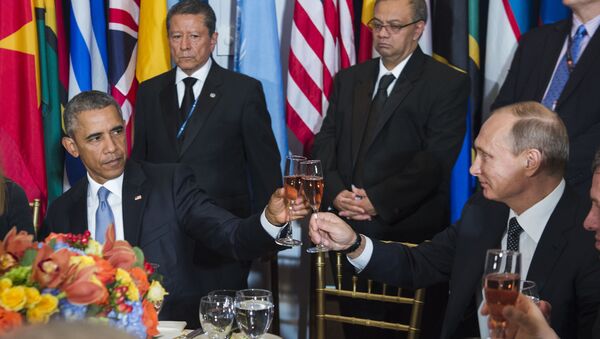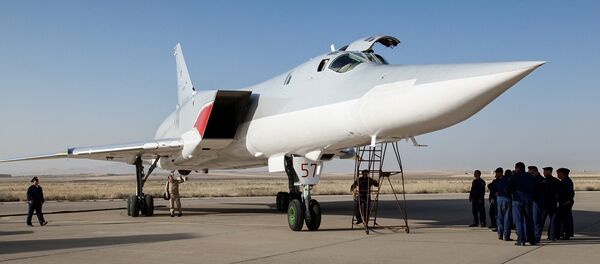With President Barack Obama's term nearing its end, media pundits turn the spotlight on what they call a string of US foreign policy blunders.
"Outgoing presidents, though handicapped, still have some say in foreign policy. Obama has none. His first years in office were dedicated to the principle that inaction was less harmful than action," British journalist and author Roger Boyes notes in his article for The Times.
The British author believes that neither opening up to Cuba, nor striking the nuclear deal with Iran do Obama credit.
"The opening up of Cuba? Predictably marred by the Castro brothers' reluctance to surrender or even share power. To keep the Iranian nuclear deal on course the president is willing to undergo any manner of contortions," Boyes notes.
But what is more embarrassing in the eyes of Western pundits and analysts is that Russia has outwitted Washington in the Middle East.
Sohrab Ahmari of the Wall Street Journal pins the blame for Russia's geopolitical emergence on Obama's policies, claiming that the US president "allowed that threat to metastasize to its current scale."
Much in the same vein New York Post's contributor Benni Avni is fuming over Russia's recent achievements: the establishment of a permanent military airbase at Hmeymim in Syria, the agreement with Iran on the deployment of the Russian strategic bombers at Hamadan, and, most notably, mending broken relations with Turkey.
"Wasn't President Recep Tayyip Erdogan angry as hell with Moscow?…That was then. This is now. Erdogan visited Moscow last week, and the two are now thick as thieves, even raising fears about the integrity of NATO. (Remember: Strategically located Turkey commands the alliance's second-largest army.)," Avni stresses.
Likewise, Saagar Enjeti noted in his article for The Daily Caller that Moscow has outperformed Barack Obama in Syria and "Syrian President Bashar Assad is the strongest he's been since the war began, despite President Barack Obama's statement in 2011 that 'the time has come for President Assad to step aside'."
However, according to Boyes, there is yet another deal Obama may conclude to write his name in the history books.
The author suggests that in the last few months Russia and the US may conclude a deal under which the US steps back from Ukraine while Moscow "restrains" its "courtship with Turkey."
"And all the signals from western Europe at the moment are that the Europeans care more about Recep Tayyip Erdogan honoring his migration pact than about speeding up Ukraine's access to the EU," he notes, adding that perhaps Obama "won't be sufficiently interested in such a trade-off" as "his time is running out fast."
"The idea could be tempting to Obama, one last fling of a statesman's dice," the author remarks.



